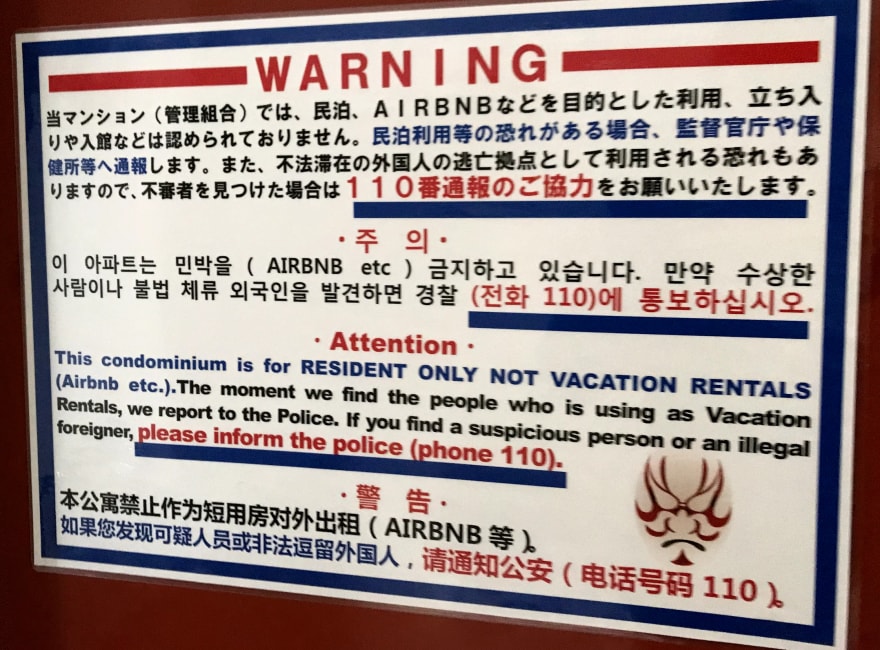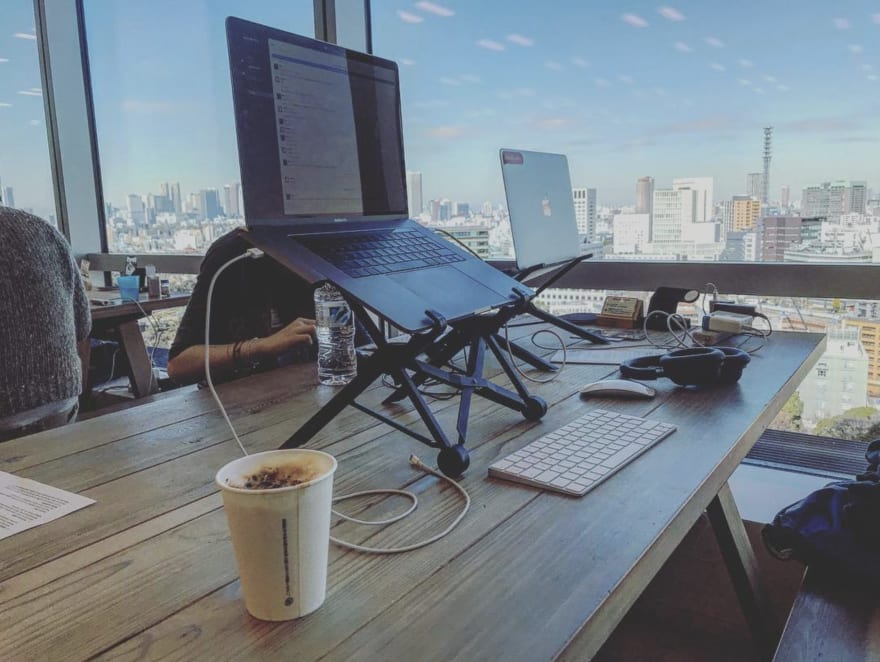One year has passed since deciding to move out of my home in England to become a digital nomad. In the age of social media and our propensity to share an idealised version of ourselves, you may be left wondering about the reality of life as a digital nomad. The perpetual travel, coupled with the variety of cuisines, cultures, nature, and all whilst earning money can seem like paradise. Especially with the often idyllic portrayal, based on the two million #digitalnomad photos on instagram, of a laptop by the beach, in a trendy cafe, or radiating a groin on a hammock as it runs yarn install. I’m guilty of sharing those type of photos myself, albeit with a sprinkle of cynicism. But I do enjoy sharing on social media what feels like a unique experience, when compared to my years working in an office and the previous two years working remotely from home. However it is quickly becoming a new normal for many, with the rise of remote working which can allow the freedom to travel whilst working.
My intention is that this post is informative for those of you interested in becoming a digital nomad, or for those who are just generally curious about this lifestyle.
🌍 Where to Go?
This will differ based on personal tastes, but there are some fundamental things that are worth considering before buying a plane ticket, such as:
- How fast is the internet?
- Is there much crime?
- Do I need to learn the language?
- Is the local culture tolerant of foreigners, your religion or lack thereof, gender, and sexuality?
- Is the air pollution bad?
- Is it expensive?
My favourite starting point for this is Nomad List. It’s a data driven list of places that are ranked by data points such as: internet speed, cost of living, and places to work etc.
It is worth noting that visas are a legal grey area for digital nomads, although that is set to change for some countries. If you’re traveling to countries for short stays under 30 days, or 90 days in some countries, then you’ll have to get a standard tourist visa. However please do your research for the individual country you’re travelling to, as with the increase in digital nomads there are likely to be new rules brought in to many countries.
🏠 Accommodation
So you’ve chosen a city, but where should you live? Budget is obviously a big factor here. You can get some great deals on hostels and Airbnb's, but make sure to check the legality of Airbnb in the country/city that you’re staying in. There are a growing number of digital nomad joint co-working and co-living services that are emerging from the increase of this lifestyle. I’ve not used one myself but a quick search for “digital nomad house share” will be a good starting point.

Outside of my Airbnb in Fukuoka, Japan 😬
💻 Where to Work?
You arrive in your chosen city, but where to work? The cliche is to work from a coffee shop, but this can lead to guilt-induced over caffeination for using all of the establishment's bandwidth! Therefore co-working spaces are a great option. Some cities have free co-working spaces, whereas some places charge by the hour, day, week or month (and these can vary considerably in price). I always start by looking for free options, then move on to look for the best and most affordable option if needed. The best paid deal I’ve got for an office so far is $40USD for a month and that was in Osaka, Japan which is a very expensive place to live. The most expensive was Denver, Colorado for $20USD per day.
My favourite resource for finding co-working spaces is CoWorker. Of course don’t forget good old search engines when looking for co-working spaces.
👨🏼💻 Self Discipline
This is applicable to pretty much any working scenario, but it’s especially important in this context. Working and travelling aren’t always complimentary, putting yourself in a new interesting place is arguably the antithesis to productivity. The last thing you want to do after flying to an exciting new country is to open your laptop and review a pull request. So here are some of the approaches I use to maintain productivity in the face of mass distraction.
Monitoring Time Spent on Work
This can be done in numerous ways, but my choice is the app Rescue Time that charts time spent on apps and websites.
Time Boxing and Checklists
Development can sometimes involve quite heady stuff and can be mentally exhausting, thus leading us to distraction. Experiments on humans have demonstrated that when presented with a rich chocolate cake vs a healthy fruit salad, we’re more likely to go for the chocolate cake if we’ve just performed a difficult cognitive task (i.e. naming a variable) [1]. The chocolate cake for me is undoubtedly the torrent of dopamine that is social media. My preferred way to mitigate against such futile indulgences is to:
- Break a task down into small steps.
- Set a timer of ~30 minutes for distraction free work.
- Have at least 5 minutes break, then stand up, stretch, look at twitter and make a tea.
When I repeat this during the day I find I’m much more productive.
🗣 Communication
If you’re going to be working for a company and/or with a team, then good communication is vital for maintaining trust and collaborating efficiently. In the space of 6 months I had switched from working 9 hours ahead, to 8 hours behind most of my colleagues. This was not without challenges, but these can be minimised by making sure you prepare and communicate well. This can even lead to advantages in some instances. For example, working ahead of colleagues meant they would wake up and all of my work was complete - it was like waking up super early (but in reality I woke up at 11am, ate sushi, and went for a walk around Shibuya).
A great lifeline for me has been getting a good data sim in the country I’m travelling in. This has been handy when left with no internet or if you’re on the move and need to be on Slack or pushing a hotfix.
🏃♂️ Health
The sedentary work of software development means that you have to make time for exercise. Healthy eating also isn’t a core aspect of developer culture (I’m looking at you pizza, beer, and redbull meetup/hackathons). Adding working whilst travelling to the mix means that your seating can often be inadequate, leaving you hunched at the laptop which can seriously damage your posture over time. The NextStand has been a great purchase, this elevates the laptop to a height that is much better for posture.
Buying a smartwatch has also been a game changer for me. I’m notified if I’ve been too sedentary, and have daily goals for: standing, steps, and cardio. This really helps in forming healthy and sustained habits.
Importantly, don’t forget to get health insurance plus general travel insurance with gadget coverage.
🤑 Money
Regardless of where you are, traditional banks tend to suck. Causing a global recession aside, traditional banks often under deliver when it comes to customer service, value, and security. My personal recommendation for an alternative is Revolut for the following reasons:
- Multiple currencies in one account (including crypto).
- Instant free exchanges to different currencies.
- Instant transfers to other Revolut accounts, and fast transfers to traditional accounts. The slowest I remember it being was 1 day to transfer from a US dollar Revolut account to a traditional US bank account.
- 24 hour in-app chat support.
- Multiple cards (including a metal card if you want it :D).
- Virtual cards! Awesome for security. You can create a virtual card for online purchases and destroy or create new ones as you please.
- Extras such as travel insurance, phone insurance, and a concierge service.
- Instant notifications of transactions on your accounts. It’s a nice peace of mind when travelling and you’ve used your card in ATMs that emit a negative aura.
Revolut are not paying me for this recommendation but they’ve certainly levelled up banking for me and are worth a look.
🧳 What to Bring
In theory you could haul a lot of stuff with you, but I whittled down my possessions to the bare essentials of around ~9 days worth of clothes. This might not suit everybody, but I found it satisfying to fit all of my possessions into a carry-on sized backpack. There is even a movement about this known as “minimalism” - although I’m not a proponent of such a lifestyle, I’m merely operating out of necessity (and would definitely buy a big monitor, TV, and a PS4 if I was settled in one place).
My essential travel items:
- Carry-on Bag
- Bag compartments
- Foldable laptop stand
- Laptop
- Tablet
- Tablet stand
- Keyboard & Mouse
- Electric travel toothbrush
🕵️♀️ Where to Find a Remote Job
Firstly, you could always ask your current employer whether there is an option to work remotely. But if they laugh in your face, you can check out RemoteOk. A quick search for “remote jobs” should also yield a decent number of results. I advise reading the job descriptions carefully, as some employers will have restrictions on location. For example I see a lot of “US only” remote jobs.
👫Social Life
I have to come clean here, there is a huge part of my journey I’ve yet to mention and that is my girlfriend (A brilliant Dietetics writer). We have been travelling and working together for the past year, so fortunately loneliness hasn’t been an issue. But fear not if you’re embarking on the nomadic lifestyle alone, as the travel and digital nomad communities both tend to be vibrant and welcoming.
Meetup is a great place to checkout if you’re wanting to meet people. Cities will have many meetups specifically for general socialising, or meetups centred on an industry or a particular technology.
Conclusion
Being a digital nomad isn’t for everyone and it’s far from perfect, with lots of different things to consider. So if your circumstances don’t permit this, then don’t let the idealised social media posts give you any FOMO (and enjoy the fact you can own more than 7 pairs of socks and will be less likely to get food poisoning).
However it is a fantastic way to explore the world, and I have found it be a good stimuli for creativity. It’s also exciting riding the wave of an emerging trend which is enabled by the internet and the increased affordability of global travel.




Top comments (0)